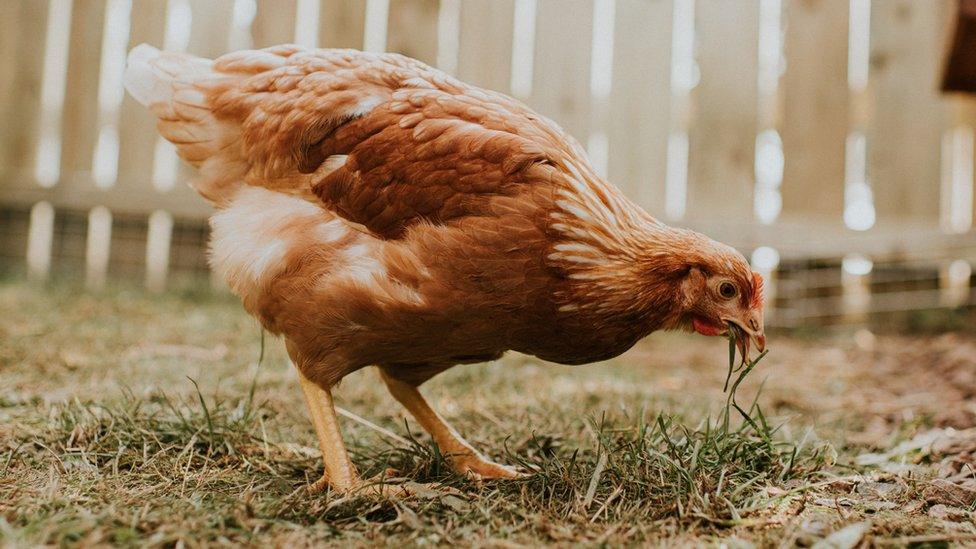Bird flu restrictions imposed across eastern England
- Published
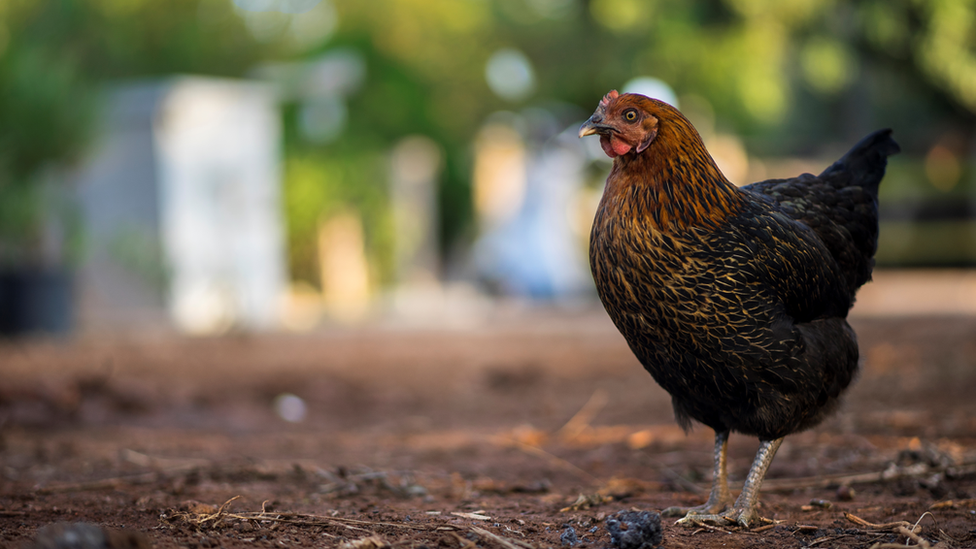
Avian flu is highly infectious in birds
All of Norfolk and Suffolk, and parts of Essex, have been made subject to avian flu restrictions.
The Avian Influenza Prevention Zone (AIPZ) had been established to mitigate the risk of further outbreaks, the Department for Environment, Food and Rural Affairs (Defra) said.
It follows a number of cases in poultry and wild and captive birds.
The UK's deputy chief veterinary officer Richard Irvine said bird keepers "must urgently take action".
Incidents have been confirmed near Hadleigh and Honington in Suffolk, and in Northwold in Norfolk.
The week before that, there were separate outbreaks at Honington and Bury St Edmunds, in Suffolk, and another near Attleborough.
The new AIPZ was declared following a number of detections of bird flu in both poultry and wild birds across Norfolk, Suffolk and parts of Essex, Defra said.
Defra said the prevention zone, external would remain in force until further notice and kept under regular review.
Protection zones of 3km and surveillance zones of 10km, external remained in place at sites in Clacton and Heybridge in Essex; Attleborough, Gayton, Holt and Northwold in Norfolk; and Bury St Edmunds, Hadleigh and Honington in Suffolk.
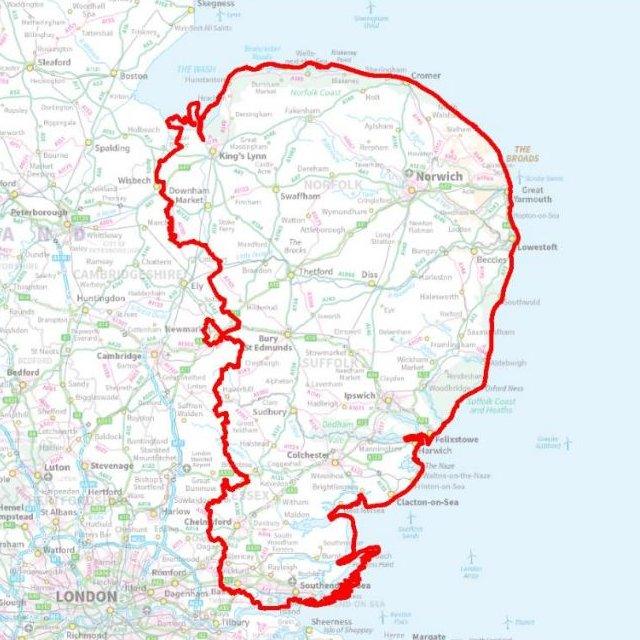
The AIPZ covers all of Norfolk and Suffolk and nine of the more easterly districts in Essex
Mr Irvine said all bird keepers had to follow "strict biosecurity measures to help protect their flocks, whatever type or size".
Backyard owners with small numbers of poultry "must take steps to limit the risk of the disease spreading".
Keepers with more than 500 birds needed to restrict access for non-essential people, Defra said.
Workers on those sites also needed to change clothing and footwear before entering enclosures, and vehicles needed to be cleaned and disinfected regularly.
The H5N1 strain of the avian influenza virus is highly contagious among birds, and spread by close contact with an infected bird, whether it is dead or alive.
Defra said the UK Health Security Agency advised "the risk to public health from the virus is very low".
Avian flu restrictions put in last month for all of Devon and Cornwall, the Isles of Scilly, and parts of Somerset are still in place.

Find BBC News: East of England on Facebook, external, Instagram, external and Twitter, external. If you have a story suggestion email eastofenglandnews@bbc.co.uk, external
- Published31 August 2022
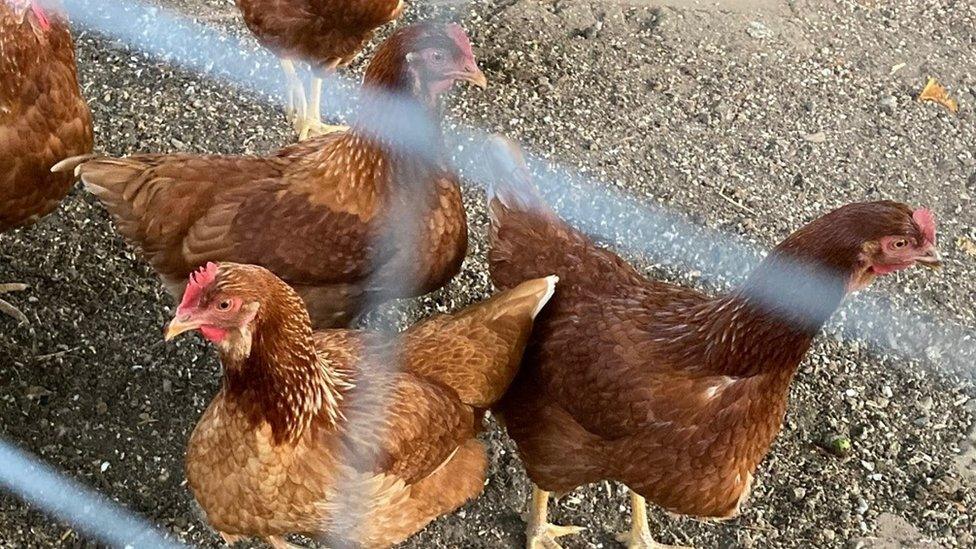
- Published26 September 2022

- Published22 August 2022
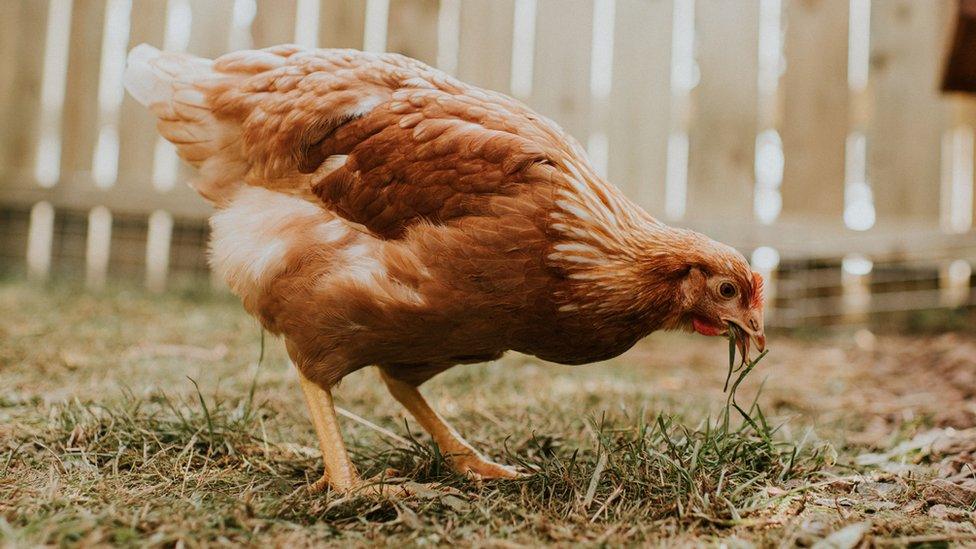
- Published30 December 2021

- Published22 November 2021

- Published21 November 2021
